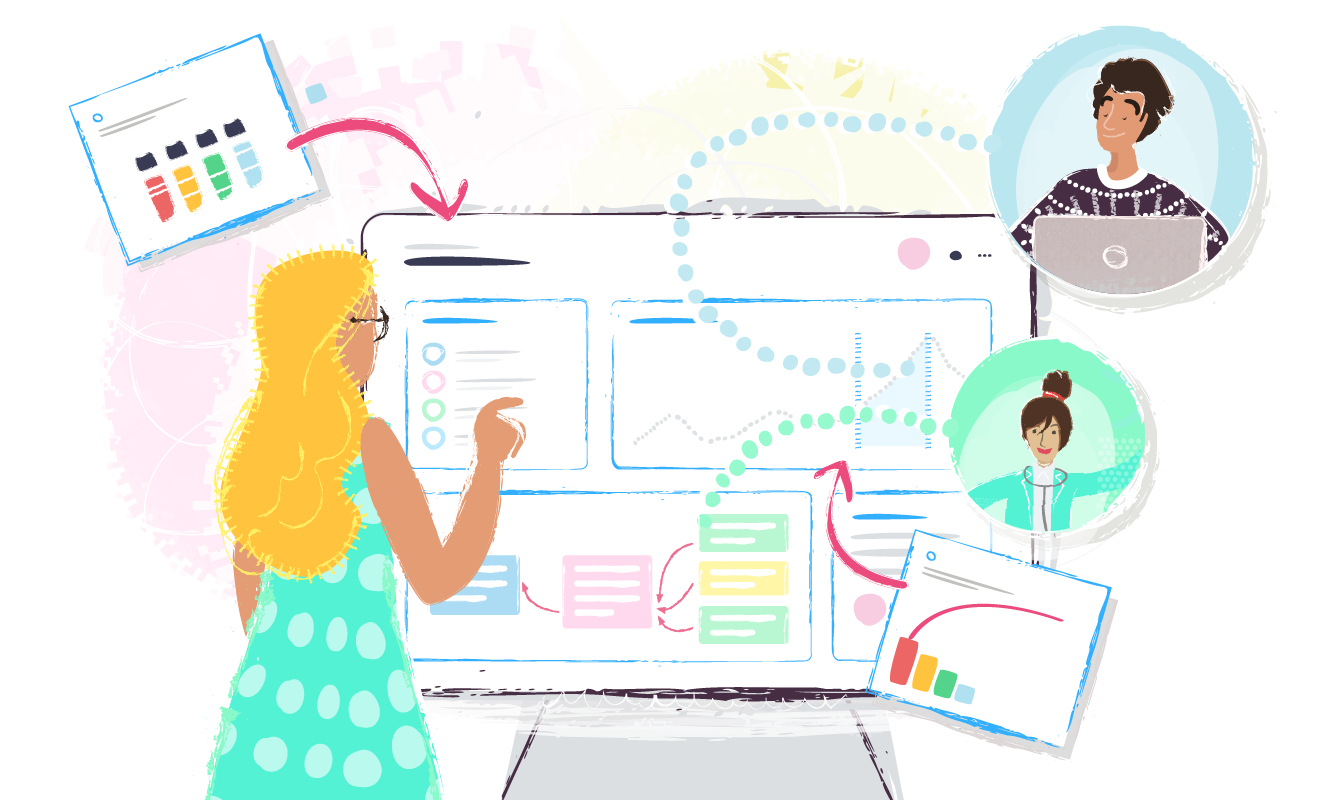Start improving with Life QI today
Full access to all Life QI features and a support team excited to help you. Quality improvement has never been easier.

Organisation already using Life QI?
Sign-up

Published on 15 December 2020 at 17:11

Part of preparing your organisation for its improvement journey is identifying gaps in improvement skills and infrastructure, and - once you have identified these - to develop the skills that will help you in your quality improvement (QI) transformation.
In its report: 'The Improvement Journey', the Health Foundation recommends key elements to support the QI journey, including infrastructure and resources, and : ‘a management system and infrastructure capable of providing teams with the data, equipment, resources and permission needed to plan and deliver sustained improvement.’
When you are starting out on your QI journey, it may be difficult to identify and share information on all the improvement work going on in your organisation, which can lead to duplication of effort as well as projects that are less successful. Whereas a more joined up approach - and by knowing what’s going on with quality projects across your organisation - can really help you succeed. In this respect, technology can be a real enabler for transformational change.
There are many tools that can help you and we are going to explore them in this article.
A key element in helping you to grow your QI capability is developing your digital infrastructure so that you use technology to help support your journey. It is a sensible approach to start using digital solutions early on in your QI journey, so that you can encourage staff to engage sooner and so that people are used to using this method.
It is worth exploring technology that has been specifically designed to support QI endeavours, as this will help you measure and feedback on success as your projects grow. Using digital technology effectively means that you can have access and oversight of all your projects – however many there might be – at any time. This can also mean that staff time is freed up, as manually entering data on improvement projects can be time-consuming. This is where tools such as Life QI can really help.
Organisations such as Central and North West London NHS Foundation Trust have used digital resources very successfully and have seen a rapid rise in staff engagement since starting their QI journey . The team have been using Life QI since 2017 and have been able to increase their capability, resulting in over 250 active projects in two years. By using technology - and by giving teams access to the tools they need - they have also been able to share the impact of the work they have done. This means it can be celebrated across the organisation - and wider still.
If you get your digital uptake right, it will help you identify barriers to improvement and will help you to allot resources at the right place and the right time.
Training for QI has developed hugely over the last 10 years but is still something you need to focus on and get right within your QI journey. Shared learning and collaboration is vital when you are creating an improvement infrastructure and, ideally, you want to be able to provide a structure that means that you and your teams can work with other organisations and carry out peer to peer learning – not necessarily in a training room.
Flexible and remote learning options are a real benefit to QI teams – as are the continuous development of improvement skills. It’s also important to monitor training to ensure that this is happening - there can be a tendency to lose focus on training after your first QI training sessions and lose momentum thereafter.
Solutions such as Life QI can really help support you in providing and keeping an eye on QI training for your team. The solution allows you to manage all your training needs in one place and sync all of your users. You can use it for your webinar training, one-to-one tutorial webinars and even on-site training. Using Life QI also gives you access to a wide range of QI resources and training reports and lets your team to stay in touch and learn from other QI organisations about their journeys. It stores all your training reports together and you can view them in a dashboard which gives you an overview of your cohort’s projects and progression.
You can learn more about training with Life QI
We’ve talked about how you can identify gaps in QI capability – now you just need to build QI capability! Technology and a sound digital infrastructure can really help here to create capability building frameworks, as well as digital solutions.
One such system for building improvement capability, is the system of ‘dosing’. In the IHI’s report ‘Building capacity and capability for improvement : embedding quality improvement skills in NHS providers ’ they suggest that: ‘Embedding quality improvement throughout an organisation requires a systematic, targeted effort such as ‘dosing’ to develop different levels of QI expertise for different groups of people.’ They also recommend: ‘To be successful, ’dosing’ should be structured around building both individual and organisational capacity and capability as the two are interdependent.’
East London NHS Foundation Trust (ELFT) developed a training programme which has enabled staff to develop their QI skills – helping them reach their target of reducing harm by 30% every year through both face-to-face and online training, and a live improvement project with support from QI coaches.
There are different ways in which you can structure your teams to help support your QI journey. One option which has worked well for some organisations, is establishing QI advisors or coaches who can work across the organisation and mentor teams. Introducing a dedicated QI team can also work really well.
The Health Foundation gives examples of trusts, such as ELFT, who have put together dedicated QI teams. The trust created a central QI team to co-ordinate its QI work and support teams. They also set up a ‘people participation’ team, which has a broad range of roles within it. Team members include an associate medical director, a head of quality improvement, three QI clinical fellows, a data analyst and a programme officer. These people and teams help to build specific improvement skills across the organisation.
There are so many tools and support for developing improvement skills and infrastructure for your QI journey. Using technology and developing a digital infrastructure is one investment that will help build improvement capability and there are solutions out there which are specifically designed to support your improvement capability. We hope you’ve found these useful and good luck in developing your organisations’ QI skills.
Full access to all Life QI features and a support team excited to help you. Quality improvement has never been easier.

Organisation already using Life QI?
Sign-up